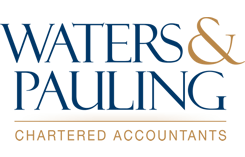Buying a Business
Provided the overall price is reasonable, it is often better, and sometimes cheaper in the long run, to purchase an existing business. You may pay for goodwill built up by the previous owner, but this cost ensures that you are generating a cash flow from day one.
If you intend purchasing an existing business, it is important to carry out the following evaluation before entering into an agreement for sale and purchase:
- Obtain the asking price, and how it is divided up between stock, goodwill, plant and equipment, and fixtures and fittings.
- Ask whether the purchase price includes GST.
- Ask about the payment terms required by the seller, and whether an alternative is acceptable.
- Obtain details of any similar businesses for sale for comparison purposes.
- Obtain the seller’s Financial Statements (ie Trading Statement and Balance Sheet) for the previous three years.
- Obtain monthly turnover figures for the twelve months to date to identify seasonal fluctuations and growth. Retailers should have a Day Book of takings and cash register reconciliations available.
- Obtain the customer list to see how vulnerable the business could be to the loss of a major customer.
- Ask about, and consider, the skills and expertise of the present owner. How much do these contribute to the success or failure of the existing business?
- Find out about competitors in the area that may affect your trade ie are they making progress whilst this business stagnates.
- Consider what growth potential lies in the business and its products.
- If rental premises are involved, obtain a copy of the current lease agreement to determine the term and rent reviews. This can affect a goodwill valuation.
- If you are taking over existing staff, are they the people you would want to employ?
- Are the machinery, equipment, fixtures and vehicles being sold with the business in good working order? Obtain a complete itemised list. Is their valuation reasonable, or is it inflated?
- Check and identify any equipment that is subject to hire purchase or lease agreements.
- Is the quality and quantity of stock acceptable to you – any obsolete stock needs to be identified and written down accordingly?
- What does your family think about the business?
If you prefer to start your own business from scratch, while it may take some time to build up your sales to a profitable level, you are creating the goodwill which will become a future asset of the business.
In both cases, you will need to give careful consideration to the following points.
Your Vision:
- What is your major goal for your business?
- What would you like your business to look like in five years?
- What do you have as a product or service that is better or different from your competitors?
Your customers and market:
- Identify the major customers and where are they located.
- Identify the size of your market, its distribution and servicing requirements.
How will you promote your business:
- Set out a promotional plan on paper. Include advertising, personal door knocking, potential customer lists, packaging methods, stationery design, and names of people who can provide assistance.
Pricing and competition:
- Evaluate competitors’ prices in relation to the quality of product or service that they are selling.
- Establish the market price that you think your customers will be prepared to buy at, as compared with your competition.
Materials or stock supply:
- List the major suppliers and their prices.
- Consider terms of payment that are required.
Budget setting:
- Set a sales budget for every week or month over the next year without being overly optimistic.
- Product – estimate the sales of units.
- Service – estimate the productive hours and staff levels you will need over the year.
- Cost out the value of stock you will need during the year.
- Estimate the costs and overheads you expect to incur during the year.
- Determine the minimum personal living expenses you will need each month.
- Will your sales level and profitability give you an adequate return?
- List the capital assets you will require such as equipment, vehicles, machinery, and the
- prices you will be paying for them.
Finance Requirement:
- How much cash will you need for stock, equipment and vehicles?
- Are you selling on credit – your debtors will also have to be financed?
- How much will you need to borrow, and what monthly repayments will you be able to afford?
- How much cash do you have available to invest in the business?
Management & staff skills:
- Assess your management skills.
- List plans of what you intend doing to improve them.
- Will you need trained and skilled staff?
Record keeping:
- List what records you will need, and who will maintain them. Include bookkeeping, debtors ledger, monthly profit estimates, Inland Revenue Department data collection and form filling.
- Set a sales budget for every week or month over the next year without being overly optimistic.
- Product – estimate the sales of units.
- Service – estimate the productive hours and staff levels you will need over the year.
- Cost out the value of stock you will need during the year.
- Estimate the costs and overheads you expect to incur during the year.


